Operational Recommendations for Promoting Policy to Ensure Educational Continuity During Prolonged Emergencies in the Israeli Education System

This report summarizes Phase B of the “Education in Crisis” Forum, established at the Samuel Neaman Institute for National Policy Research following the outbreak of the October 2023 war. During its operation, the forum applied a risk management model. This report outlines nine proposed actions for implementation, developed during Phase B of the forum’s activity. These actions are presented at three levels The national level, The education system level, The educational team level — including teachers, principals, and school leaders.
“Scenarios and National Goals for Food Security in 2050” a Second Interim Report Within the Israel 2050 Food Security Project

This interim report is part of the process of shaping Israel’s national food security policy for 2050. The report focuses on proposing reference scenarios that influence food security in Israel and deriving goals and objectives for action, with an emphasis on three key dimensions: climate, demographics, and dietary patterns. These dimensions significantly impact the ability to ensure the availability, accessibility, and quality of food sources over time, both during routine periods and in emergencies.
Law enforcement in the 21st century :Law, Government&Politics, Science&Technology
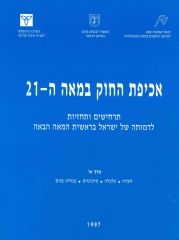
This two volume publication contains the research reports and summaries of seminars held in the framework of the perennial project of predicting the state of law enforcement system in the 21st century and to prepare for it. The project was initiated by the Office of the Chief Scientist in the Ministry of Public Security (former […]
Law enforcement in the 21st century: Society, Economy, Minorities, Internal Security
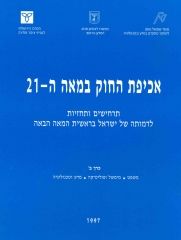
This two volume publication contains the research reports and summaries of seminars held in the framework of the perennial project of predicting the state of law enforcement system in the 21st century and to prepare for it. The project was initiated by the Office of the Chief Scientist in the Ministry of Public Security (former […]
Past initiatives to strengthen the Israeli society: Lessons from the Past
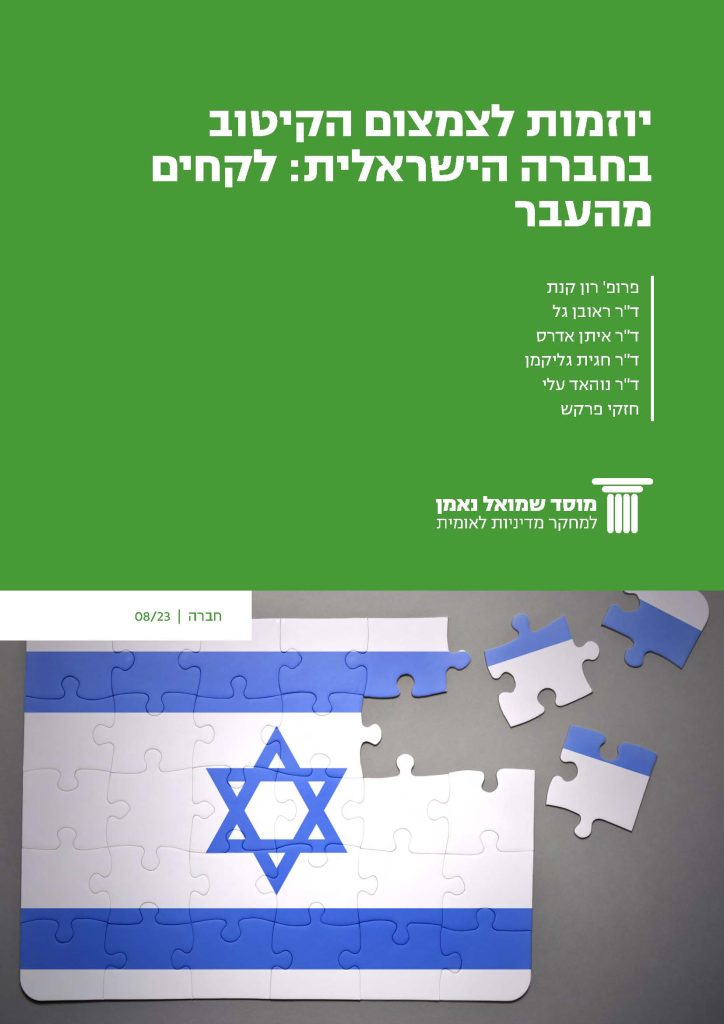
Israel is in the midst of a multidimensional crisis combining legislative initiatives, policy changes and public upheaval. This led to long lasting protests that exposed the fragmentation of the Israeli society. The Samuel Neaman Institute has addressed issues related to the Israeli society since 2005, including a unifying definition of societal resilience (Gal, Padan, 2020). […]
Strategic Competition – U.S. China 2022 – An Israeli Perspective
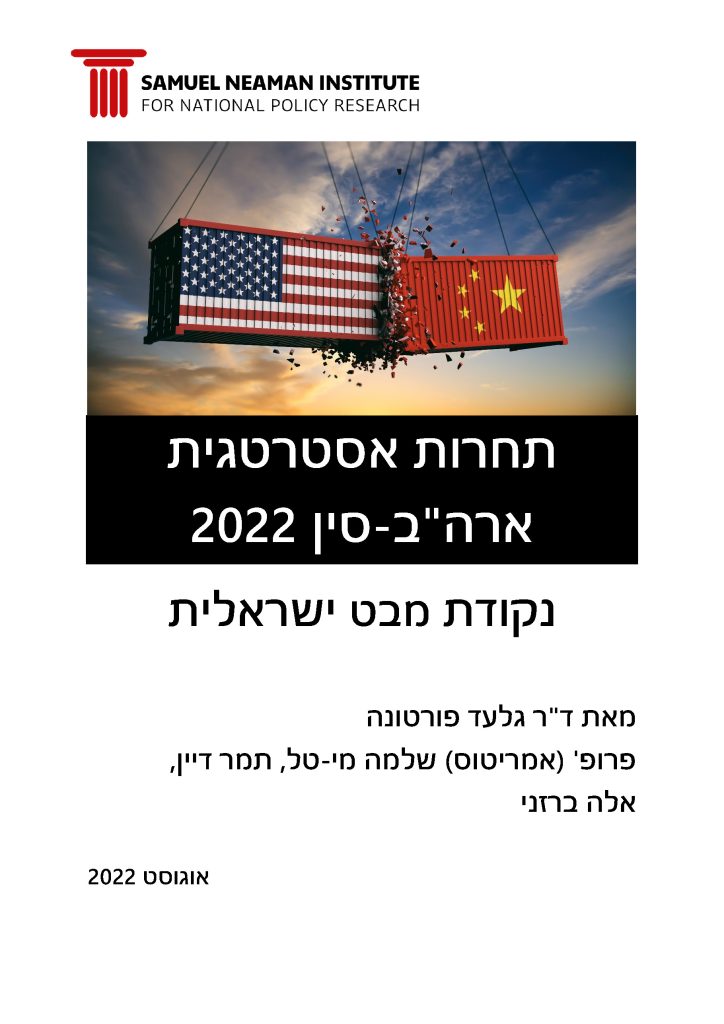
This survey paper reviews recent research in the rapidly changing relations among the triangle of Israel, China and the United States. Israel has long enjoyed a special relationship with the US, in trade, investment and technology, and in recent years, has benefited from trade and infrastructure investment with China. US-China rivalry has greatly complicated this […]
The Economic Impact of the Abraham Accords After One Year: Passions vs. Interests
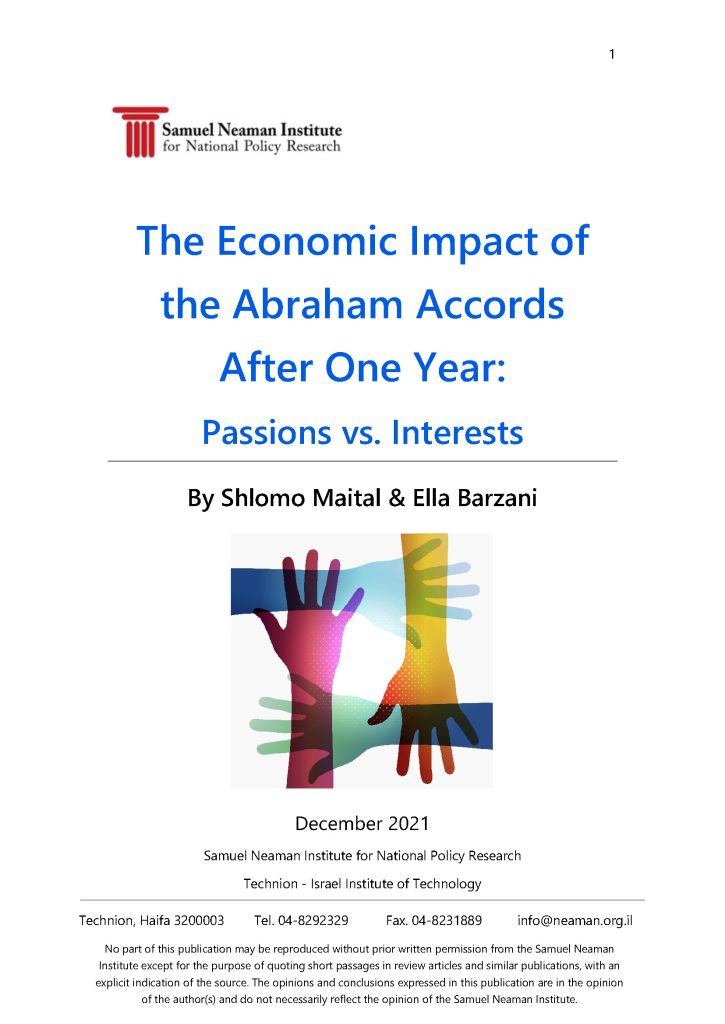
This brief essay summarizes research on the economic benefits of the Abraham Accords, flowing to the five nations involved: Israel, Morocco, United Arab Emirates, Bahrain, and Sudan. Israel is seen so far as reaping the largest share. The agreement with the United Arab Emirates is by far the most significant, for the two nations. The […]
Fixing military conscription by adding new mistakes? Critical comments on “Equal for All” guideline.
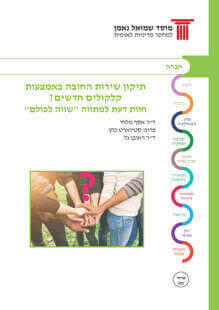
The report is a critical review on the content of an official “Guideline” submitted by the ‘Pnima’ movement in early 2020, entitled “Recruitment and Equal Service for All.” At the heart of the outline is the proposal that all sectors of Israeli society, including the Arab and ultra-Orthodox ones, will be recruited at age 18, […]
Violence, Crime and Policing in Arab Society: Personal and Community Security Index- 2019
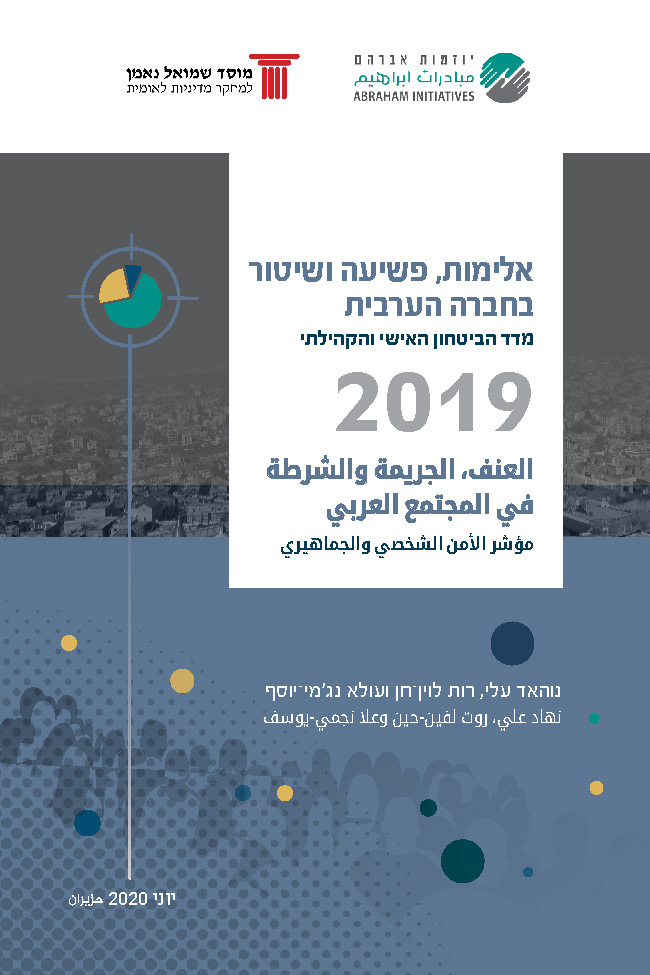
Link to the full Report The 2019 Personal Security Index is the third report issued on the subject of violence, personal security, and policing in Arab communities in Israel. The index was launched in recognition of the alarming reality in Arab society, which has reached new peaks in recent years. Every year we see a […]
The strategic implications of Chinese investments in Israel’s economy and infrastructure
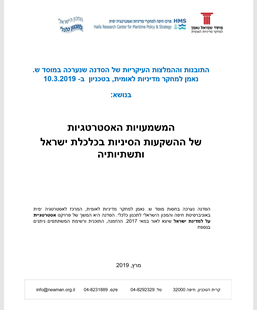
The document is the product of a one-day workshop attended by 22 leading experts in various areas relevant to the subject discussed. The workshop was held in March 2019. The document summarizes the conclusions and recommendations of the Forum.
